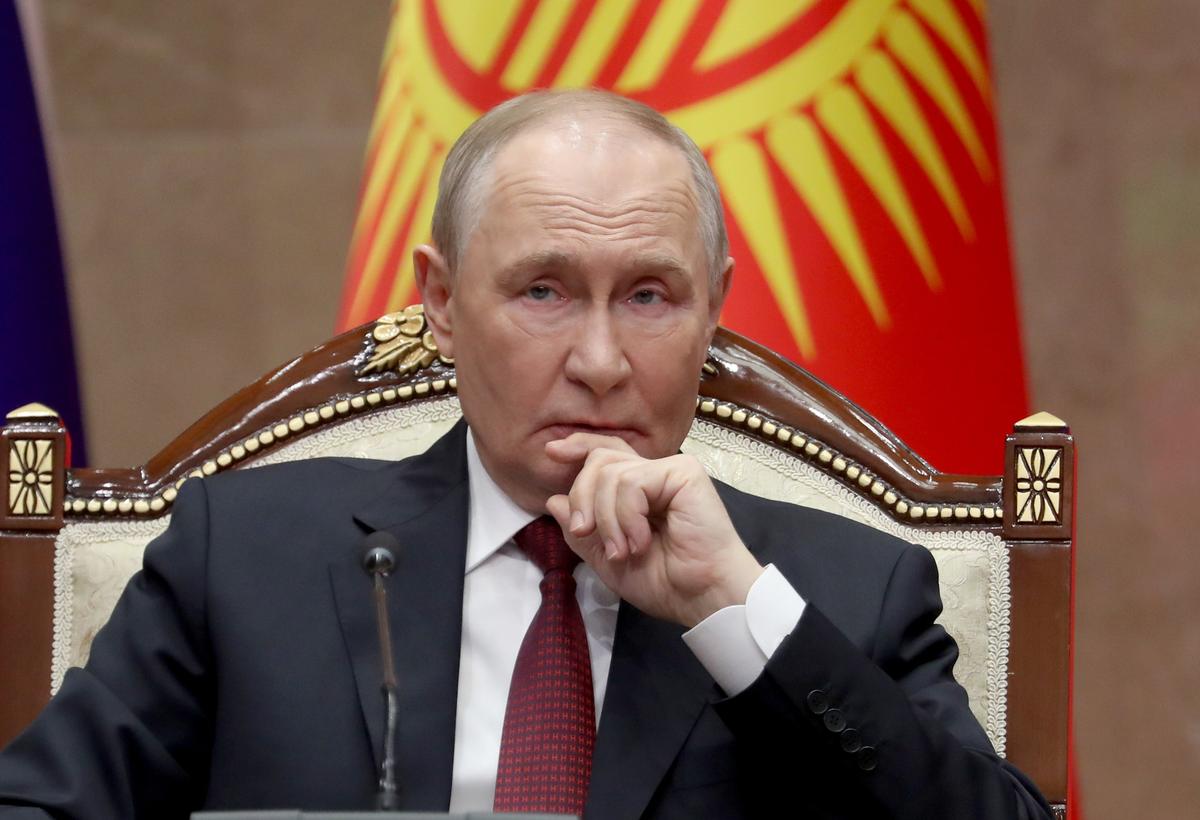
Vladimir Putin during a meeting with Kyrgyz President Sadyr Japarov in Bishkek, Kyrgyzstan, 26 November 2025. Photo: EPA / Igor Kovalenko
Vladimir Putin has issued an exhaustive decree setting out Russia’s new national policy strategy for the next decade, according to which the country’s national interest will be reinforced through strengthening the role of the “Russian people”, preserving territorial integrity and combatting Russophobia and neo-Nazism.
The strategy, which is to be official policy until 2036, consists of 61 points divided into six different sections and outlines various spheres in which the national interest can be served, focusing especially on strengthening the role of ethnic Russians around the world, rather than simply those who are citizens of the Russian Federation.
Another key objective is to combat Russophobia, xenophobia, and neo‑Nazism, which in October was incorporated into the Russian military curriculum as a threat to national security.
The strategy also set targets for the Russian population to meet by 2036, including that requirement that 95% of Russians show “civic consciousness” by then, 85% to view interethnic relations “positively”, and for no more than 15% of Russians to anticipate serious conflicts based on ethnicity.
In addition, the strategy requires the state to create an “objective” perception among foreigners that Russia is a democratic society living under the rule of law and where citizens are guaranteed equal rights regardless of gender, race, nationality, language or religion.
The development of the illegally occupied Ukrainian territories that were unilaterally absorbed by Russia in 2022 was also set out in the policy document, with the decree setting a 2036 goal for nearly all residents to join “nationwide events,” with participation projected at some 2.5 million people.
